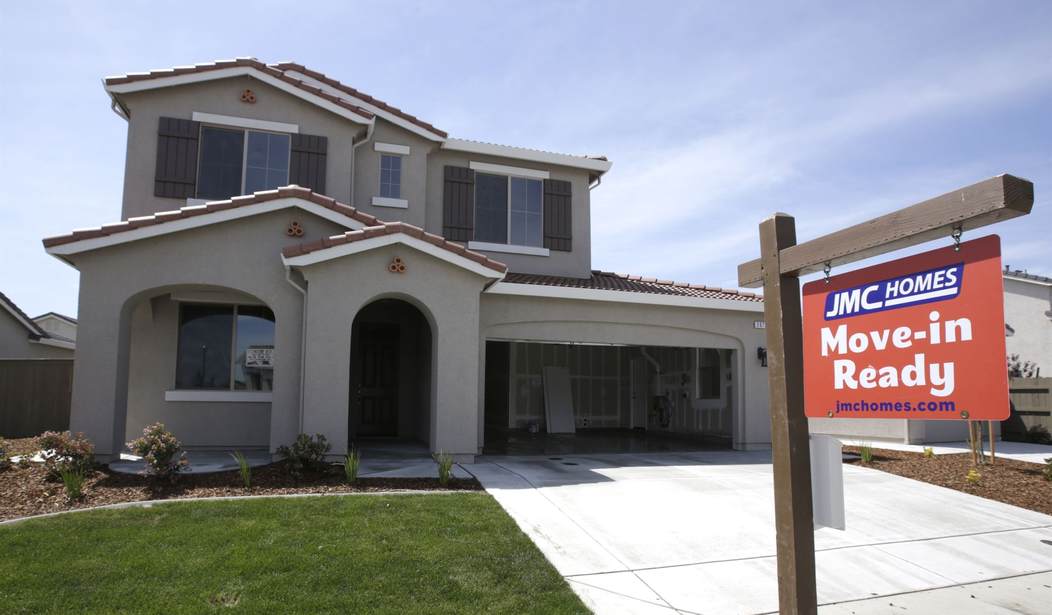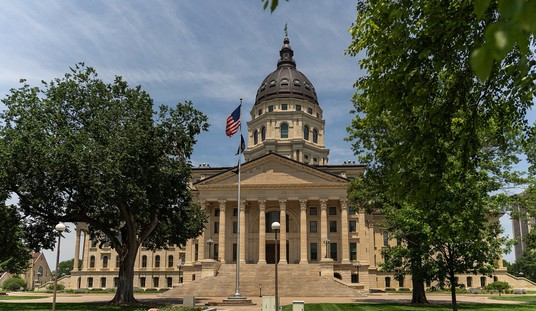One of the key parts of the American Dream is owning one's own home.
Home ownership is central to everything else we do in our lives. It's not just a cover for all our stuff, as one famous comedian once put it. It's a home, a place where we are comfortable, a place where we raise our families, relax, and grow old. Our homes are places where memories are made. The homes may change; most Americans move at least once in their adult lives. But in time, the new home becomes Home, and we settle in and grow comfortable. But home ownership has, in recent years, become a more difficult proposition.
My wife and I bought our first home, a small ranch house in the Denver area, for $69,500. Six years later, we sold it for $140k, and bought the big, rambling barn we raised our family in for $189k - and when my wife and I moved to Alaska, we sold it for over half a million dollars. Even given inflation, that's a pretty dramatic increase in home prices, and a big part of that is due to the Denver metropolitan area's restrictions on zoning and property development. Oh, it was great if you were already in the real estate market. But for young people just starting out? Not so much.
Now, at least one report has it that this difficulty, the increasing prospect among Gen Z in particular, that they may never be able to own a home, is driving them towards a policy solution that will only make things much, much worse - socialism.
Gen Z’s growing support for democratic socialism is occurring along with a declining belief that core aspects of the American Dream are attainable. Generations of Americans have believed that, through hard work, everyone has the opportunity to achieve a better life and that includes becoming a homeowner. This optimism is fading among Gen Z. A 2024 survey found that 60% of Gen Z fear they will never own a home and, among Gen Z homeowners, 1 in 3 reported struggling to pay down their mortgage.
Homeownership rates among Gen Z have flatlined at 26.3% since 2023, and today, Gen Z represents just 4% of homebuyers. The most significant barriers to homeownership are economic in nature: costliness of homes, high interest rates, low wages, and insufficient savings are all cited by frustrated young people struggling to make inroads into the housing market.
There's more to it than high interest rates. The increase in home prices is in no small part due to a decrease in supply, most especially of "starter homes." Our first house, which I mentioned above, was a classic starter home, as they were built in the early '70s (1974, in this case). It was a 1,008-square-foot ranch with an unfinished basement, three small bedrooms, and one bathroom. Many people raised families in houses this size back in the day. But in the Denver area, at least, you just don't see many houses like this being built. It's townhomes or apartments for younger people, and huge McMansions otherwise.
That leaves rentals for the younger people, but that's a problem. When you own a home, every mortgage payment you make adds a little to the equity in your home. For most Americans, that's one of the primary ways they develop their net worth. But rent money is just out the door and gone.
Consequently, Gen Z has leant heavily into the renting market. Yet, the high cost of the rental market is also creating barriers to homeownership. Rent skyrocketed during the pandemic, as construction sites shut down and supply chains were disrupted. Although some cities have subsequently increased their housing supply, rent inflation still remains high nationally. The Census Bureau reported that in 2023, nearly half of the 42.5 million household renters were ‘rent burdened’ households which spent over 30% of their income on rent. Although rental rates have remained flat over the past two years, a new report last month found that median rent increased by 1.7%, the largest increase in over two and a half years.
And that leads to one of the worst ideas these young people could ever have:
In light of these trends, it is unsurprising that Gen Z has embraced rent control. And this brings us back to Gen Z’s embrace of democratic socialism. Rent control is not only viewed as a policy that prevents landlords from unfairly raising rental prices, but it is also viewed as a means to control a growing cost burden that is obstructing their ability to purchase a home. In Colorado, 91% of young people, including 68% of young Republicans, supported rent stabilization policies that would ensure renters have ‘reasonable’ rents. Similar, 3 in 4 young Californians supported rent control laws.
Thus, the appeal, in places where the problem is especially bad, of socialist and even outright communist politicians like Zohran Mamdani.
Read More: CA Non-Profit Reportedly Linked to Massive Housing Fraud Scheme
What to Do With All Those Empty Bedrooms? Let's Talk About Boarding Houses
Take high housing prices, add in a rabble-rousing socialist who is promising rent controls, and you've got an economic disaster in the making. But rent controls always have the same effect: They reduce supply. Landlords, realizing they can no longer profit from their properties, sell out. They quit. The rentals go condo, or they are re-tasked. The number of available rentals goes down. Things get worse.
The answer? The same as it always is - the opposite of socialism. Liberty and property. Deregulate the housing market. Rewrite zoning laws to encourage the old-style starter homes. Make it easier for developers to increase the supply of homes. And, I might add, stop taking away a third to half of every American's income in taxes, fees, and other government theft.
There are other options. Two of our four kids moved to a small town in eastern Iowa, from where my family sprang, as real estate is much cheaper there. If one can earn a living in an outlying area, that's a good option. The traditional multi-generation household is another. But those are all short-term solutions, for the most part.
If we want to rebuild the American Dream, to make it possible for these kids to buy homes, to start to build wealth, it's liberty and property rights that will do it. Socialism has failed every time it's been tried - it is not and never will be the solution.















